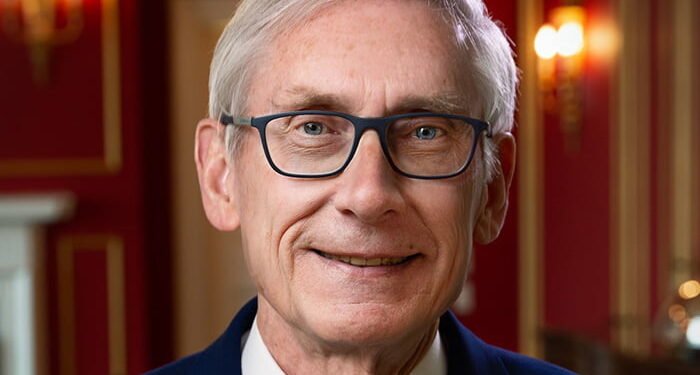
Wisconsin Governor Tony Evers
Wisconsin Governor Tony Evers last month announced two grants under the Wisconsin Department of Transportation’s Harbor Assistance Program.
One, worth $29 million, is for improvements needed at the Port of Marinette to allow for the production of the next generation of Navy ships. The other, worth $4.9 million, will support the construction of a new agricultural commodity bulk vessel transload facility at Port Milwaukee.
The grant to the Port of Marinette will support continuation of shipbuilder Fincantieri Marinette Marine’s site improvement project. That project includes the construction of a vertical ship lift structure, dock walls and bulkheads and harbor dredging to transition the shipyard to accommodate the construction of larger vessels.
BULK VESSEL TRANSLOAD
The bulk vessel transload facility at Port Milwaukee, the first of its kind on the Great Lakes, is being constructed at the port by the DeLong Company, an agricultural products wholesaler .
The transload facility will initially export dried distillers grain, an animal feed supplement that is a byproduct of Wisconsin’s ethanol industry. The terminal also will be able to handle other bulk grains such as soybeans, corn and wheat in the future.
“The diversity of Wisconsin’s agriculture industry is our strength, and part of our international appeal,” Gov. Evers said. “Our state’s agribusinesses rely on finding markets for the high-quality products our farmers produce. This grant connects the dots between our agricultural producers, state agencies, and businesses like DeLong that serve our agriculture community.”
This facility also received a $15.9 million grant from the U.S. Maritime Administration (MARAD) and $4.3 million in additional funding from Port Milwaukee.
In 2019, combined tonnage at Port Milwaukee’s public and private facilities was up 11% from 2018, totaling over 2.6 million tons handled.
Created in 1979, WisDOT’s Harbor Assistance Program helps harbor communities maintain and improve waterborne commerce. Applications are reviewed by the Harbor Advisory Council, which includes members from the U.S. Army Corps of Engineers, UW Sea Grant, Wisconsin Coastal Management Program, Wisconsin Economic Development Corporation, Wisconsin Department of Natural Resources and alumni from the Great Lakes Maritime Research Institute.













